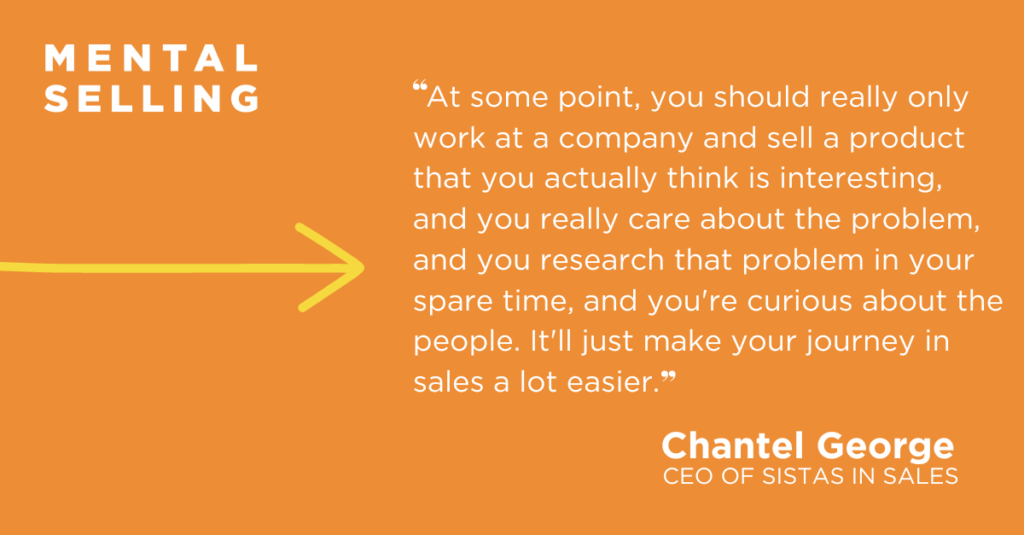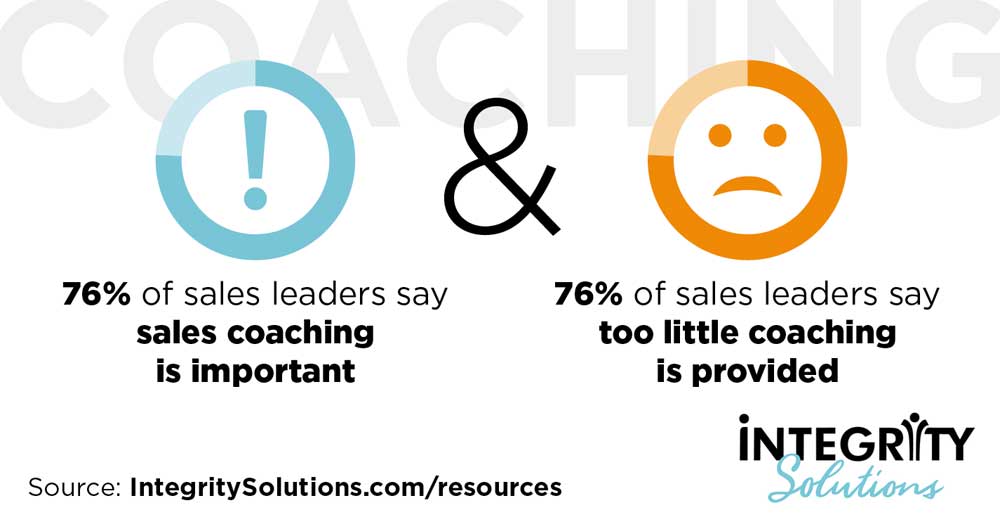Four Unwritten Rules of Sales to Get to the Next Level

One of the most common pathways into sales is… accidental. Many people find themselves taking a sales role almost as a stop gap or layover en route to their “real” career. It’s the thing to do while they figure out what it is they actually want to do. And then a funny thing happens: They realize they like doing sales and find it rewarding.
Along the way, though, they often discover that there are many intangibles and unwritten rules of sales that are a huge factor in getting established and then to the next level in sales. You might have some natural talent in talking and gaining rapport with customers or hunting down leads, but until you understand and build confidence and competence in those often more elusive areas, you’ll be limited in how far you can go.
Chantel George, founder & CEO of Sistas in Sales, remembers discovering this for herself as she “stumbled into sales” while trying to decide on her own professional path. As she shared during an episode of our Mental Selling podcast, she enjoyed being sales, but she could also see what was missing and how those elements would become a barrier not just to how far she could go but also to how rewarding the job would be.
“To become successful in sales, you need a lot of networking. You need a lot of support. You need a lot of methodology… you need to pull on every resource available to you to be successful,” she notes. “That’s why community’s important.” Once she found community, she went from liking her job to loving it.
Beyond core selling techniques, deep product knowledge and the latest and greatest sales enablement tools, the intangibles and inner motivations are what will really help you jump start your sales journey and build it into a thriving, rewarding career.
Let’s take a look at a few of these deeper factors and unwritten rules of sales that make all the difference.
You can’t fake enthusiasm — at least not for long.
Sales, at its core, is about solving customer problems. It’s about being inquisitive and wanting to really understand what the customer needs and then helping them get those needs addressed. There’s a degree of “detective work” in sales. That requires certain activities, like doing your homework to find out as much as you can about a prospect’s situation, connecting the dots to how you’re connected to the customer, sharing relevant content at every stage, developing effective client presentations and proposals, working with specific buyer personas, asking great questions, negotiating and overcoming objections.
The question you have to ask yourself is, do you enjoy doing those things? Are they things that motivate you? Or do you struggle to get through them (or even make excuses to not do them)? If not, you’re likely going to struggle to stay energized and follow through the way you need to- and the way customers want and expect you to. The realities of the job will drain you, and sooner or later, you’ll plateau out. Trying to force it just doesn’t work over the long term.

By the same token, do you like and truly believe in the solutions you’re representing and the problems you’re solving? Your belief in the products or services and mission of the company is pivotal to your sales success. If you’re not passionate about the offerings and the kinds of problems you’re solving, it’s going to be a hard road. This is why Chantel emphasizes that it’s vital to work for a company with a product that’s interesting to you and that is addressing problems you’re curious about and interested in solving.
What’s more, “You’re the face of the company when talking to the prospect,” she says. “They can tell if you’re not enthused. That energy transfers. And it’s really hard to fake…”
Curiosity is a sales superpower.
Now more than ever, the best salespeople aren’t the ones who come in bombarding customers with a litany of product features and technical details. The buying journey has shifted, which means salespeople are meeting prospects at a much more advanced stage in the cycle. Buyers are more educated, they’ve done the research, they’ve compared solutions. They’re spending much less time with salespeople during the buying process, and so when they do they’re looking for sales reps to be helpful, emotionally intelligent, strategic and solution-oriented.
This is why the best salespeople ask a lot of thoughtful questions. And they ask because they’re genuinely curious. They’re interested and want to know more. They’re listening to the customer’s answers and not just thinking about what they’re going to say next.
That doesn’t mean they come in as a blank slate. Their curiosity starts before they even have a conversation with the customer. They do the research and try to learn as much as they can ahead of time. As a result, the questions they ask are well-informed and value-added—and the customer recognizes it immediately. Because they can see that the salesperson has invested the time to understand their problems, it builds credibility and trust faster and creates more opportunities.
Curiosity builds resilience. Curiosity is an especially useful superpower when it comes to handling customer objections. And, it includes embracing the inevitable rejections along the way- and viewing them not as a hindrance but as a gift. Objections indicate that a would-be buyer is about to make a decision… but they’re stuck. They know that what they’re being offered might work, but they need more to get them to move forward. Chantel told us. “If you understand the customer and their C-suite inside out, you’re working from a bank of knowledge. We can really talk.” And the customer now sees you as someone who’s there to help solve a problem, not simply move a product.
Relationships always pave the road to sales success.
As Chantel points out when talking about community, relationships are what give successful salespeople a leg up. Sales is a pressure-filled job, and those relationships create the supportive runway you need to bolster your confidence and help you navigate make-or-break deals, corporate politics and your entire career journey.
From her perspective, as a female person of color, Chantel is acutely aware of some of the inherent advantages she didn’t have when she started out in sales. She saw that salespeople who already had networks, resources and mentors to draw on were better able to turn on their confidence in times of stress or when they were chasing down a quota—because they had support and community already in place. That kind of confidence comes through in conversations with clients.
Mentors, in particular, are important to help salespeople navigate corporate politics and transition into senior level roles. It’s only natural that people tend to build connections and relationships with people who have similar backgrounds and other commonalities. But by excluding those who are different, even if it’s unintentional or unconscious, leaders run the risk of losing talented people whose careers are stalling out because they lack the networks and mentorship to move up.
This can also become a blind spot for sales managers and recruiters when they’re considering people for promotions or open positions. If their networks are homogeneous and they’re not intentional about expanding and diversifying those networks, they won’t be able to expand their pool of quality candidates.
“It comes naturally,” Chantal says. “If you’re accustomed to spending time with people who look like yourself, then that’s all you know as professionals to refer.”
Strong sales leaders are essential.
While there was a lot of talk in companies a few years ago about DEI pledges and various changes that were going to be made, many employees are now concerned that it’s starting to seem less important or strategic. Chantel equates it to a customer who gets white glove service all the way through the buying process and then once they become a customer, everything changes. “People feel slighted by that. Just stand by your word.”
If you’re a senior leader, she suggests that if you have underrepresented groups or new people of color in your organization, be proactive and reach out to start a dialogue. Ensure they feel there’s a connection between you, as a senior leader, and them. This simple step can be game changing.
Sales leaders also play an essential role in helping their teams navigate through the unwritten rules of sales and its many intangibles. One of the most important ways they can do that is through consistent coaching and providing actionable, thoughtful feedback.

Empathy is a key characteristic of strong sales leaders, and effective coaching is one of the ways you demonstrate it. It shows that you care about the person and their success and believe that they can achieve their goals. This is what sets apart the great sales leaders from all the rest—and it’s what builds great sales teams and strong pipelines.
“Sales enablement tools have replaced feedback, but thoughtful, intentional feedback from sales leaders is essential,” Chantel notes. “The intangible of that is that someone believes in me, believes I can do it.”
Tech tools and AI can’t do that. Like so many of the pivotal, unwritten rules of sales, that takes a human.

Chief Marketing Officer
Related Blog Posts



